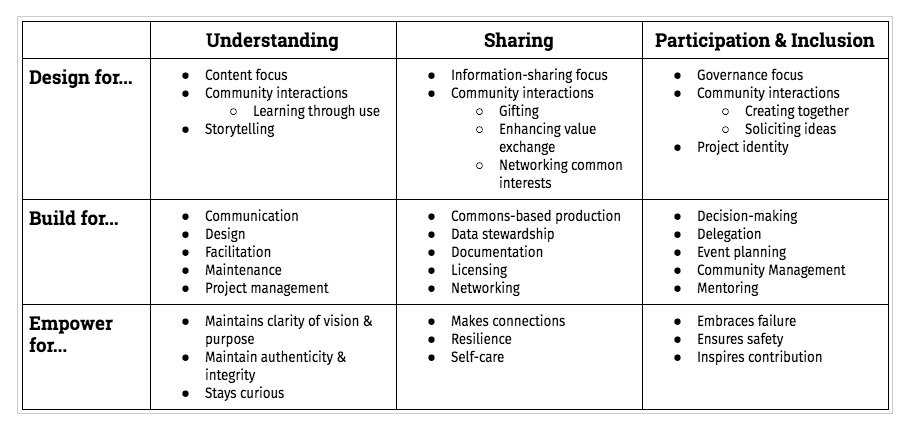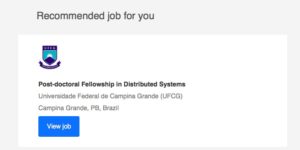 I have just submitted an abstract to the European Conference on Educational Research (ECER). This years conference is at the Free University Bolzano in Italy in September. The proposed paper is based on work we have been doing through the European Research programme Employ-ID project.
I have just submitted an abstract to the European Conference on Educational Research (ECER). This years conference is at the Free University Bolzano in Italy in September. The proposed paper is based on work we have been doing through the European Research programme Employ-ID project.
Abstract
The world of work is undergoing fundamental transformations. Bringing employees into the position of shaping change instead of merely reacting is one of the key challenges lifelong learning as well as learning and development faces.
A neglected, but crucial aspect here is the employees’ professional identity, which is a key factor developing resilience in a world characterized by uncertainty. It empowers individuals, and determines motivation and openness to new developments – and overcomes obstructionism and frustration often associated with change processes.
Towards that end, the focus of professional learning and human resource development needs to target “deeper learning” and to shift away from training skills towards facilitating the transformation of the professional identity of employees, both individually and collectively. Identities are often communicated and developed using stories: stories we tell about our jobs and ourselves, and stories others tell about us. But todays workplaces often do not provide opportunities for exchanging narratives. But they are particularly helping in uncovering experiential and affective components, which are hidden success factors and barriers.
The paper is based on a European Research Framework project, EmployID. The project brings together research partners and partners from Public Employment Services in Europe.
Public Employment Service Employees are facing pressures in their work with austerity providing increased demand of new services with less resources and digitalisation in the delivery of services.
In the context of Public Employment Services (PES), EmployID has investigated how a technology-enhanced learning approach can facilitate identity transformation through a series of interventions in the form of social learning programmes, complemented by labour market information tools as well as reflection, and peer coaching leading to the development of reflective communities. The understanding of reflective communities of practice is based on Wenger (Wenger, 1999), who sees communities of practice as groups of people who share a domain, who work on improving themselves and who share a common practice. The common domain and practice is in our case working in a public employment as a counsellor working to bring together job seekers and employers. Communities of practice are a proven concept to facilitate exchange knowledge and experiences in companies (Wenger, McDermott, & Snyder, 2002).
The technology assisted interventions have been co-designed together with managers and staff in the different Public Employment Services. They have been accompanied by the extensive programme of evaluation, designed not only as a formative tool for improvement, but to provide data for developing a deeper understanding of the concepts and ideas which underpin the approach and for developing frameworks for analysis of the use of technology for learning within communities of practice.
One focus for such understanding is the idea of places and spaces. “Place and space are both products of social practice, albeit different systems of practice. These new practices, then, transform existing spaces as sites of everyday action (Dourish, 2004). Dourish says: “The technologically mediated world does not stand apart from the physical world within which it is embedded; rather, it provides a new set of ways for that physical world to be understood and appropriated. Technological mediation supports and conditions the emergence of new cultural practices, not by creating a distinct sphere of practice but by opening up new forms of practice within the everyday world, reflecting and conditioning the emergence of new forms of environmental knowing.”
The paper will draw on the extensive evaluation data collected through the EmployId project to examine the ways in which the spaces created by the interventions from the EmployID project have led to new practices, facilitated learning and supported storytelling and professional identity transformation.
Methodology and Sources
The project partners initially worked with Public Employment Services at both European and country level in identifying problems faced along with priorities for development.
This lead to a co-design process with different PES services around a series of interventions including
- Social learning programmes (or MOOCs) providing online courses typically of six weeks duration with 2-3 hours learning per week. The term ‘social’ reflects a pedagogic approach for participants facilitating the learning of others.
- Peer coaching programmes have been developed and delivered both through face to face workshops and online activities
- Reflective communities’ have been developed and launched in Public Employment services in three countries (Bunk & Prilla, 2017)
- Systems and tools have been developed for providing access to Labour Market Information and Intelligence, also in two different countries
All the interventions have been extensively evaluating and analysis of the evaluation results is ongoing (the results are expected by May 2018).
Evaluation methods have included:
- Interviews and focus groups with participants
- Interviews with managers
- Discourse analysis (from the social learning programmes and Reflective Communities)
- Surveys and questionnaires
- Analysis of log data
The ongoing analysis of the data is focusing on not just the success or otherwise of the interventions but what the data can tell us about identity transformation, professional development and the use and appropriation of online spaces for learning and knowledge sharing.
Conclusions
Our earlier work has led to interim findings regarding learning and identity transformation. We have identified three ways of learning (Kunzman, C. & Schmidt, A. 2017).
Learning as becoming
Stories, as identities themselves, have both a personal and an organisational dimension and could link to ideas about learning through self-understanding; sense-making; personal agency; motivation (determination); resilience; commitment to own learning and professional development; and career adaptability.
The second way ‘learning for identity development’ can be represented as occurring is across four domains: relational development; cognitive development; practical development; and emotional development. Learning may involve development in one or more domains and development in each domain can be achieved in a number of different ways, but development can be represented thematically, although the extent of development under particular themes can vary greatly across contexts and in individual cases.
Thirdly learning in opportunities structures within which individuals in the PES operate.
The key to understanding learning for identity development is to switch between the three representations in order to get a more rounded picture.
Our present ongoing work is focusing on how participants use and develop places and spaces, the opportunities for action that spaces afford and their relation to changing social, cultural and professional practices.
Key References
Blunk, O., & Prilla, M. (2015). Prompting users to facilitate support needs in collaborative reflection. In M. Kravcik, A. Mikroyannidis, V. Pammer, M. Prilla, & T. D. Ullmann (Eds.), Proceedings of the 5th International Workshop on Awareness and Reflection in Technology Enhanced Learning (AR℡ 2015) in conjunction with the EC℡ 2015 conference (Vol. 1465, pp. 43–57). CEUR-WS. Retrieved from http://ceur-ws.org/Vol-1465/
Blunk, O. & Prilla, M. “Supporting Communities of Practice in Public Administrations: Factors Influencing Adoption and Readiness.” In Proceedings of the 8th International Conference on Communities and Technologies, 36–45. C&T ’17. New York, NY, USA
Brown, A. & Bimrose, J. (2015). Identity Development. In Hartung, P. J.; Savickas, M. L.; and Walsh, W. B. (Eds), (2015). APA handbook of career intervention, Volume 2: Applications. APA handbooks in psychology. (pp. 241-254). Washington, DC, US: American Psychological Association.
Cressey, P., Boud, D., & Docherty, P. (2006a). Productive Reflection at Work. In D. Boud, P. Cressey, & P. Docherty (Eds.), Productive reflection at work: Learning for changing organizations (pp. 11–26). New York: Routledge.
Dillenbourg, P., Järvelä, S., & Fischer, F. (2009). The evolution of research on computer-supported collaborative learning. In Technology-enhanced learning (pp. 3–19). Springer.
Dourish, P. (2006) Re-space-ing place: “place” and “space” ten years on, CSCW ’06 Proceedings of the 2006 20th anniversary conference on Computer supported cooperative work, Pages 299-308
Eraut, M. (2004). Informal learning in the workplace. Studies in Continuing Education, 26(2), 247–273.
Hyland, N., Grant, J. M., Craig, A. C., Hudon, M., & Nethery, C. (2012). Exploring Facilitation Stages and Facilitator Actions in an Online/Blended Community of Practice of Elementary Teachers: Reflections on Practice (ROP) Anne Rodrigue Elementary Teachers Federation of Ontario
Kunzman, C. & Schmidt, A. (2017) EmployID: EmployID Deliverables D[2-9].3, 2017
Wenger, E. (1999). Communities of practice: Learning, meaning, and identity. Cambridge University Press.
Wenger, E., McDermott, R. A., & Snyder, W. (2002). Cultivating Communities of Practice: A Guide to Managing Knowledge. Harvard Business School Press.
![]()

 jobs it recently found for me:
jobs it recently found for me:



 I have been involved in research in Vocational Education and Training for a long time. Vocational Education and Training is a strange thing. Although always popular in the German speaking countries, for a long time it went out of fashion in many countries. With the emergence of the Knowledge Economy, went the story, we needed more people with higher qualifications. Mass university education was the answer.
I have been involved in research in Vocational Education and Training for a long time. Vocational Education and Training is a strange thing. Although always popular in the German speaking countries, for a long time it went out of fashion in many countries. With the emergence of the Knowledge Economy, went the story, we needed more people with higher qualifications. Mass university education was the answer.
